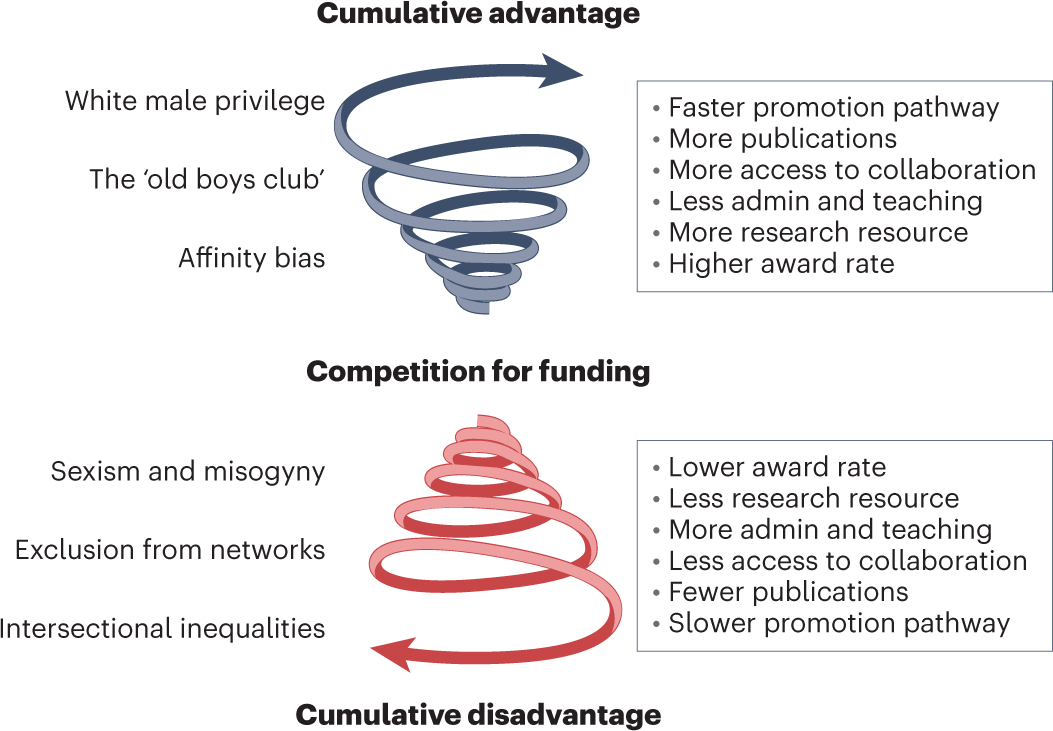Governments worldwide are committing more funding for scientific research in the face of the ongoing pandemic and climate crises. However, the funding process must be restructured to remove the barriers arising from conscious and unconscious biases experienced by minoritized groups, including women, and particularly women of colour. Recent data releases from the UKRI and the EPSRC indicate that women win fewer and smaller grants than men when applying for grant funding. Women encounter biased judgement of their work and barriers to success when submitting grant applications, and the impact of this inequity accumulates across the course of a career, reducing the number of senior female role models visible to early career scientists, and driving the gender pay gap.
Examples of barriers experienced by women in our funding systems include lack of time to write proposals due to excess burdens both domestically and in the workplace, with women frequently bearing an excessive proportion of the teaching and administrative load in academia. Women also report a lack of access to male-dominated networks and hence a lack of support in preparing grant proposals. This can extend to institutional gatekeeping procedures, where decision-making on who should be allowed to submit proposals can lack transparency and accountability. Positive actions can be taken to overcome some of these issues – for example, deliberately providing extra opportunities for minoritised groups to apply to calls where numbers of applications are limited by funders. However, the very slow rate of progress in tackling system-wide under-representation of women may suggest that more drastic solutions should be considered. At a national level, these might include the introduction of a new funding scheme to provide a universal baseline research income to all academic staff. Such funding would need to be contingent on institutions retaining and promoting women and other historically excluded groups to incentivise support for a more diverse ecosystem.
The views expressed above are those of the authors of the paper.
Figure: Illustration of how the inequities experienced by women in trying to win research funding can accumulate over the course of a career.
J. M. Jebsen, K. Nicoll Baines, R. A. Oliver & I. Jayasinghe, "Dismantling barriers faced by women in STEM", Nature Chemistry 14 (2022) 1203–1206

